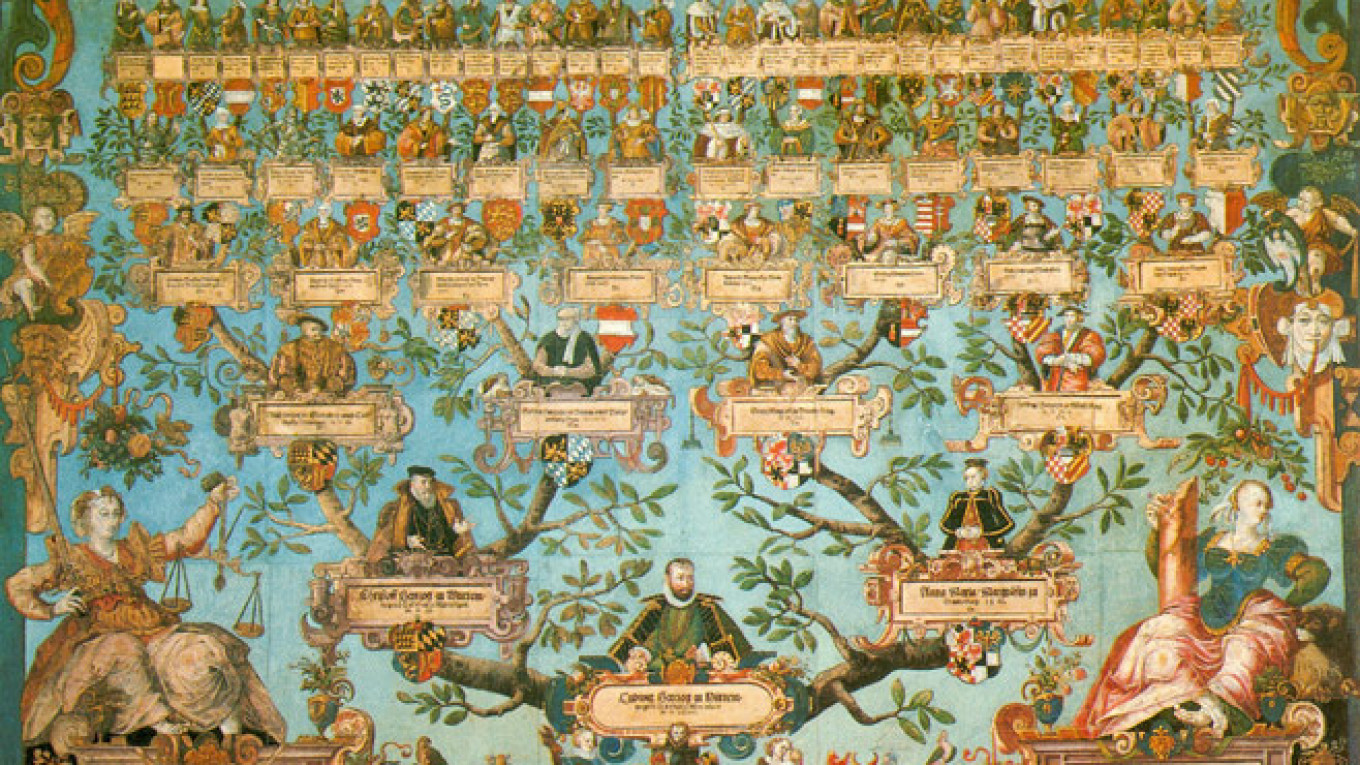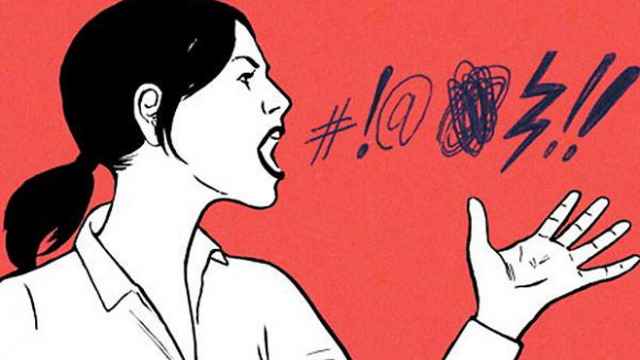Господи́н Формо́зов: Mr. Handsome
In my mailbag I found a question about Russian surnames — a simple query about the prevalence of “directional” last names, like West and North in English. And like all simple queries, it took a book, several monographs and dozens of Internet forums to conclude that I’m not too sure about Господин Западов (Mr. West), or his buddies Северов (North), Югов (South), and Востоков (East). I couldn’t figure out how common these names are, but I did find a Госпожа Западова (Ms. West) who was a востоковед (Eastern scholar), which made me very happy.
Actually, many of the ways in which surnames were formed in Russian are very similar to the ways English speakers got their names. The most common names in Russian are “son of” — like Jackson or Johnson: Борисов (son of Boris) and Сёмин (son of Syoma, or Simeon).
Interestingly, there are also matriarchal surnames in Russian, like Катин (son of Katya) and Olin (son of Olya or Olga). Let’s give a cheer for matronymics!
And then there are lots of professional names, the Russian equivalents of Smith and Fowler (bird catcher). These are common names like Кузнецов (from кузнец — smith), Гончаров (from гончар — potter), Купцов (from купец — merchant) and Попов (from поп — priest). The last one, Попов, is one of the most common Russian surnames — in ninth place.
Some people got names from where they lived, like Печорин, who lived near the Pechora River, or the Волгин family, who lived on or near the Volga. Some got names based on their national, non-Russian origins, like Немцов (German), Шведов (Swede), Поляков (Polish), or Арапов (Negro). Or they got them from a distinguishing feature. These names are fun, because you get a sense of what some long-lost ancestor looked like: Кудрявцев (had curly hair); Белокуров (had blonde hair); Усачёв (had spectacular mustaches). One side of my family is Трегубенко, so we know that a distant ancestor had три губы (three lips), or in more common parlance — a harelip.
Some names came from Latin, through the influence of Polish Catholicism and Ukrainian on Russian. These names include the Tweedledum and Tweedledee of Майорский (Mr. Major) and Минорский (Mr. Minor), the completely deceptive Пингвицкий (Mr. Pinguis — fat) who is not a penguin after all, and Формозов (Mr. Formosus — Mr. Handsome).
One of the most interesting etymological stories is about names ending in -их and -ых that are found in the northeast of Russia, from the Urals through Siberia. The tale is that local people gave their neighbors names that were adjectives characterizing the families, like Долгие (tall), Короткие (short), Белые (fair), Мелкие (tiny). And when they’d meet people, they’d ask “Чьих ты будешь?” (Whose would you be?) And then — tiny drumroll — the people would answer, say, “Долгих” (literally “of the tall ones”). And that’s how all those genitive plurals of adjectives became surnames.
Does that sound like armchair etymology to you? It does to me, but I’m open to all options. With Russian, you never know.
And then sometimes you might have a surname that sounds fine in Russian, but turns out to have quite unfortunate connotations in other countries. Take this poor guy, an emigrant who decided on a military career in the U.S.: Ты даже не представляешь, как тяжело служить в aмериканской армии с простой русской фамилией Фокин! (You just can’t imagine how hard it is to serve in the American army with the simple Russian surname of Fokin!)
Michele A. Berdy, a Moscow-based translator and interpreter, is author of "The Russian Word's Worth" (Glas), a collection of her columns.
A Message from The Moscow Times:
Dear readers,
We are facing unprecedented challenges. Russia's Prosecutor General's Office has designated The Moscow Times as an "undesirable" organization, criminalizing our work and putting our staff at risk of prosecution. This follows our earlier unjust labeling as a "foreign agent."
These actions are direct attempts to silence independent journalism in Russia. The authorities claim our work "discredits the decisions of the Russian leadership." We see things differently: we strive to provide accurate, unbiased reporting on Russia.
We, the journalists of The Moscow Times, refuse to be silenced. But to continue our work, we need your help.
Your support, no matter how small, makes a world of difference. If you can, please support us monthly starting from just $2. It's quick to set up, and every contribution makes a significant impact.
By supporting The Moscow Times, you're defending open, independent journalism in the face of repression. Thank you for standing with us.
Remind me later.








